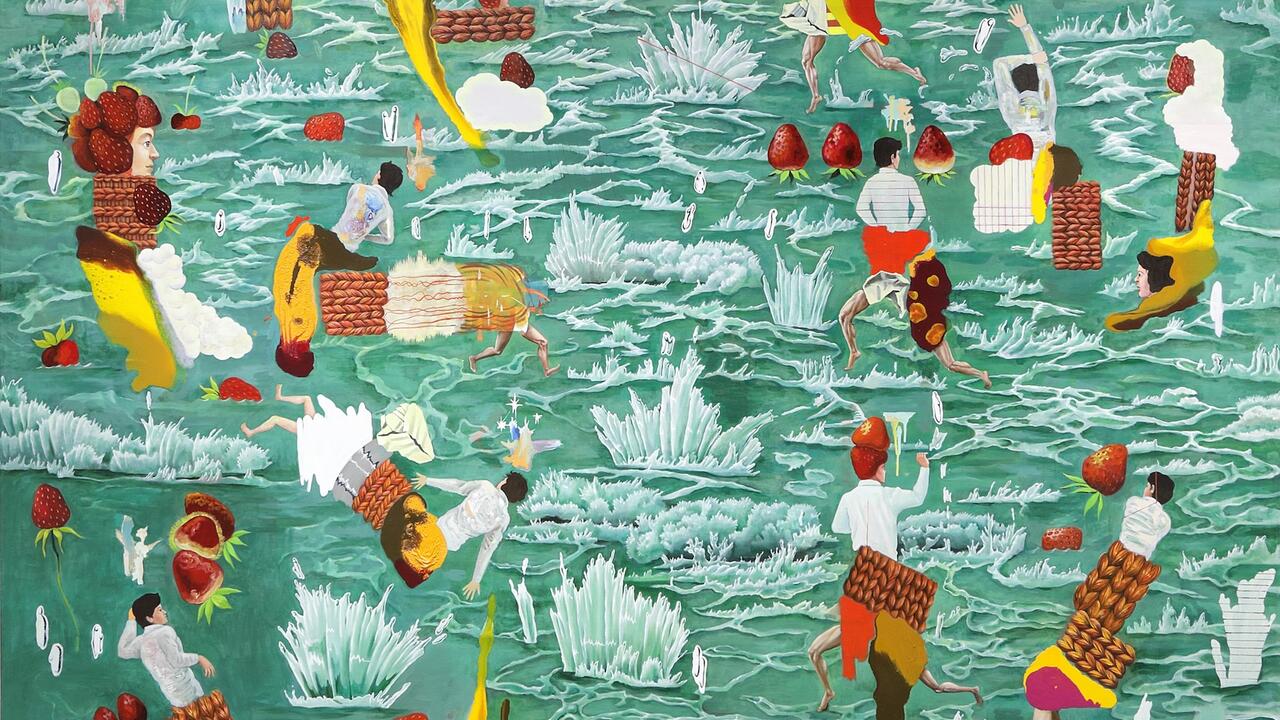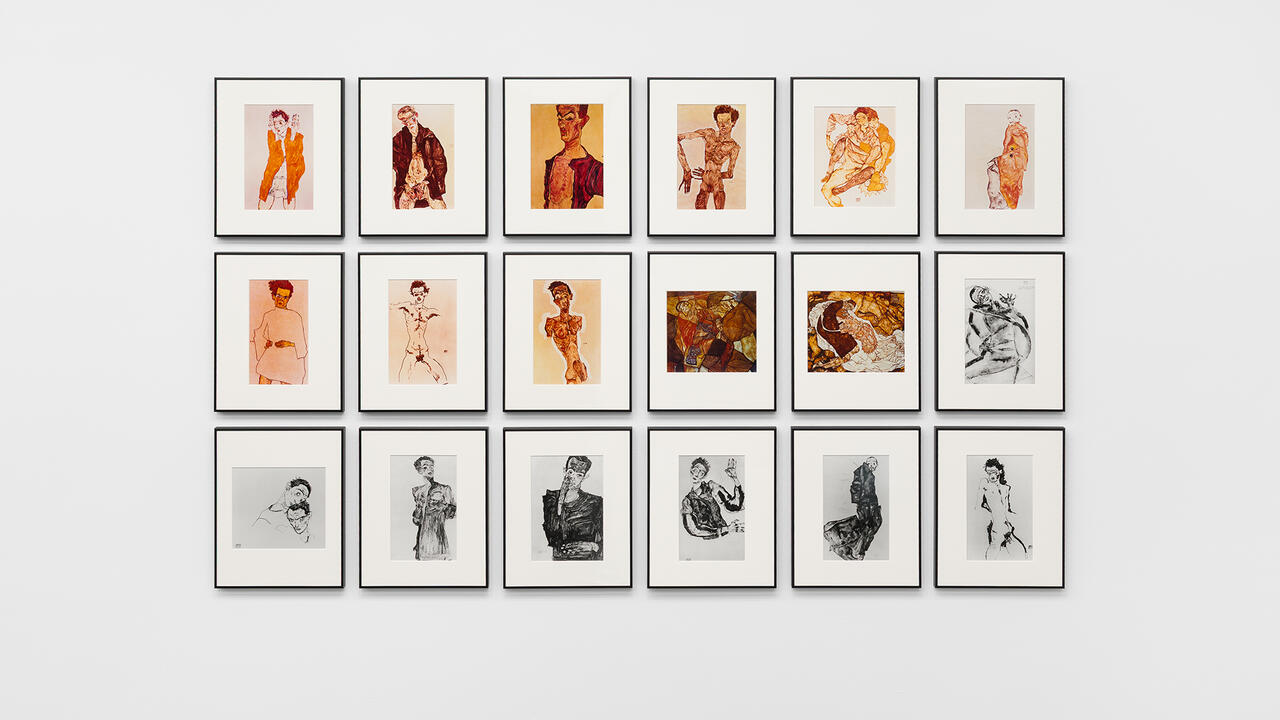Anders Clausen
Galerie Schöttle
Galerie Schöttle

The exhibition space was dominated by large-format panels of white PVC, covered with simple, printed graphic symbols and text fragments, some cut off mid-word. The graphic elements – red zigzags, black blocks with zigzag edges, horizontal lines, text fields in the style of a drop-down menu – were all taken from software user interfaces, especially standard word processing programs. Removed from their original context and greatly enlarged, they took on an abstract, sparse quality, distantly recalling Minimal art. There were also ready-mades – a Teflon-coated frying pan, a microwave oven and a large, horizontal format sheet of aluminium, all Untitled (2012) – along with comic strip fragments focusing on the characters’ eyes, also Untitled (2012).
Casually presented, the computer graphics, everyday objects and comics seemed to say: ‘It is as it is’. In his work, Clausen seems to trust in the impact of the uncommented object. The commodity character of things is visible when objects are seen alone, and the same applies to the absurdity of many everyday objects, even in purely formal terms. In a society guided by mass media and consumer culture, objects also develop a strange, often uncontrollable dynamic of their own. Clausen focuses on such autonomous objects, emancipated from functional purpose and posed to provoke a reaction by their facticity alone. In this exhibition he continued to explore what might be called a self-empowerment for objects in general and for computers in particular.
One of the PVC panels – ‘I Would Prefer Not To’ (2012) – combines the zigzag red lines of the AutoCorrect function with phrases like ‘This file is not available’, ‘Forbidden’ and ‘Server is too busy’. Among these all-too-familiar formulas, one finds the work’s title: the well-known quotation from Herman Melville’s story, Bartleby, the Scrivener_(1853), about an office clerk who politely but firmly declines to perform any further activity for his employer. Nothing doing. This was echoed in formal terms in the random arrangement of the text fragments, which recalled pop-up error messages. Another panel, _‘Out of Office’ (2012) – a staircase-like arrangement of horizontal bars that seems to point to the ongoing computing process in the background – contained an email subject line: ‘Out of office Re: Where is my money?’ Here, the combination of a (crudely direct) personal question and the labyrinthine quality of today’s virtual communications suggests real economic consequences. ‘on’t know what to do’ (2012) – Clausen’s cut-up version of a lyric from Kraftwerk’s song Computer Love (1981) – similarly highlights the ambivalent relationship between man and machine (and between machine and machine), a relationship characterized by attraction and solitude in equal measure. Or to quote Kraftwerk: ‘Another lonely night’.
After these kinds of semantic suggestions, one could interpret the comic fragments: the knitted eyebrows might be read as annoyed or angered comments by the ‘scrivener’ or user, present only though allusion. The drawing of a cat licking its genitals – featured both on the invitation card and in one of the works (Untitled, 2012) – wavers with its strange contortions between a necessary act of bodily hygiene and a helpless bit of displacement activity. ‘on’t know what to do’ … my word processing program just underlined the first word in red. Or is the computer trying to tell me something else, like ‘I would prefer not to’?
Translated by Nicholas Grindell

















